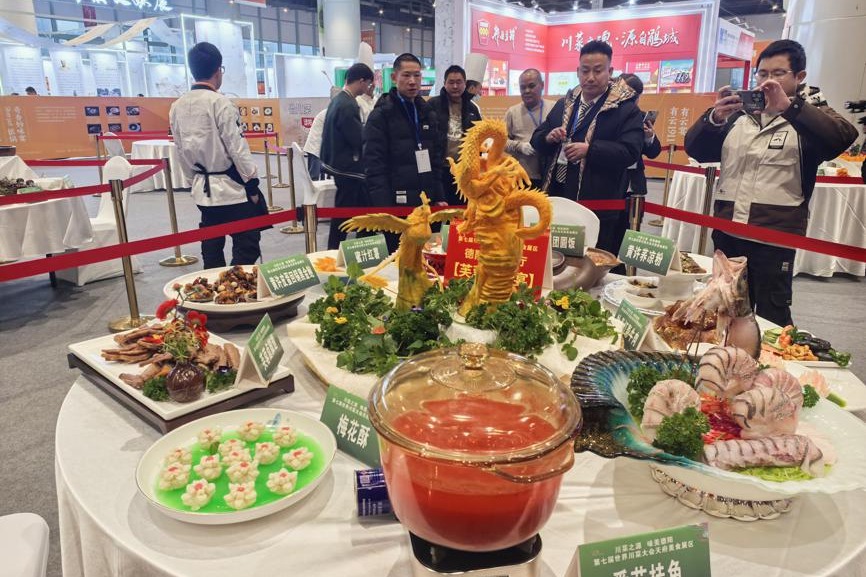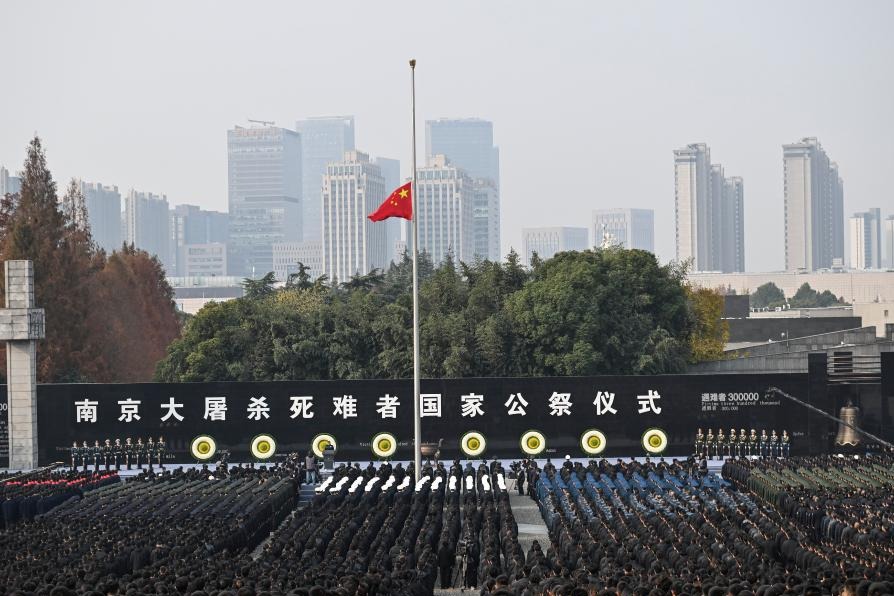Elder care advances improve quality of life for many

For some, eldercare centers may symbolize the epilogue of life. Yet at a center in Macao, many seniors are embracing new chapters of life's second half.
Amid the guitar riffs of Michael Jackson's Beat It, a group of seniors learned dance steps at the I Chon eldercare center. They attentively moved with the rhythm. The moves are not too difficult and most of them stayed in step with the others. Minor mistakes were inevitable, but they quickly adjusted and refocused on their next move.
"Taking classes here makes time pass so quickly," said Lei U-peng, a retiree in her 60s. She goes to dance and swimming classes held at the center every week. For her, time spent at the center not only helps enrich retirement but also contributes to her health and expands her social network.
"Common interests are catalysts of friendship," Lei said. After becoming acquainted with people in her classes, she starts to meet them regularly after class and friendships bloom.
There also are many other activities at the eldercare facility. The center, set up in 2007 by the General Union of Neighborhood Associations of Macao — one of the largest nonprofit social service organizations in the special administrative region — currently serves hundreds of people older than 45. It has an area of nearly 2,000 square meters on two floors, one for continuing education and one for healthcare services.
Chan Iok-keng, an 80-year-old resident, said she'd like to spend the rest of her life at the center in order to avoid loneliness.
After having a stroke this year, Chan must use a wheelchair most of the time. Since then, she said, life has become increasingly tedious.
Her daughter, too busy to take care of Chan, hired a Vietnamese worker to care for her, she said. But language differences left Chan unhappy with the arrangement and she started using the healthcare services at the center.
Since then, the hours between 9 am and 4 pm are the happiest of her day. At the center, Chan dines, chats and receives rehabilitation training with other elders. Together, they recall memories of the past and face the uncertainties of the future.
Chan is also happy with the professional services offered by the center's medical workers. Elders also can take equipment home to continue their rehabilitation.
Quality services
A flagship community service provider, the I Chon center outperforms many competitors in the area, whether in the diversity of activities or the quality of daily care services, said Vicky Ho, director of the center.
The center offers around 50 courses every quarter, covering such topics as sports, health, culture and technology. There is also a library and an entertainment room offering such diversions as games and puzzles for elders.
The center also has become a pioneer in introducing innovative rehabilitation therapies, Ho said. Besides introducing special dolls and toy pets from Japan to treat dementia, this year the center became the first in Macao to introduce the TANO intelligent rehabilitation training system, which includes software that reacts to body movements, according to Ho.
Ho said the center's educational and healthcare services are popular. Due to limited space, applicants must draw lots for access.
Most educational classes cost only 200 to 400 patacas ($25 to $50) per quarter, while the daily healthcare service costs less than 2,000 patacas a month.
Contributing to society
In 2009, then-vice-president Xi Jinping visited the center. In October, about 30 elder volunteers at the center jointly composed a letter to Xi, now the nation's president, about Macao's development since its return to the motherland, especially progress in care for the aged.
In a written reply, Xi greeted the elders and encouraged them to maintain their enthusiasm for serving the community.
Ma Tang, a volunteer who wrote the letter on behalf of the elders, said serving others gives her satisfaction. Ma teaches calligraphy at the center every week.
As for her motivation, Ma said she puts herself in others' shoes. "Everyone will get older, including myself. At that time, I hope somebody will also lend me a hand."
Lei, the retiree, also became a volunteer at the center after attending classes there nine years ago. Besides weekly calls to elders who were living alone to identify their needs, Lei also visited their homes every month to help them.
Lei formed deep bonds with the seniors. "Some of them could immediately recognize my voice when I called. I really enjoyed the conversations, when we would exchange each others' joys and sorrows," Lei said.
- Expats donate blood at Shanghai charity event
- Subway delivering parcels, a boost to low-carbon logistics underway
- Three Gorges project generates 1.7 trln kWh of power
- 5 missing after boat capsizes in Yellow Sea
- China's box office revenue for the upcoming New Year movie season exceeds 1.5b yuan
- COP16 China Pavilion highlight desertification success stories





































